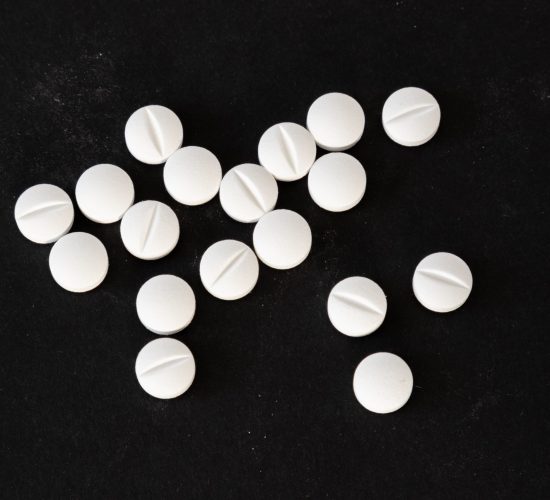Fentanyl Withdrawal + Detox
Fentanyl is a synthetic opioid similar to morphine; however, it is up to 100 times more potent. Fentanyl is prescribed to treat severe pain and is often given immediately following surgery. Due to its potency, Fentanyl can be highly addictive. Since the early 2000s opioid overdoses in the United States have quintupled. Fentanyl comes in numerous forms including a patch, lozenge, nasal sprays, or pills. It also comes in liquid form so that medical professionals can inject it.
Fentanyl is extremely addictive and many find themselves unable to stop taking fentanyl after a short period of use. After someone has developed a dependence, stopping the drug can cause mild to severe withdrawal symptoms.
Signs and Symptoms of Fentanyl Withdrawal
Those who become addicted to fentanyl and who try to abruptly stop the use of the drug or taper their dose can begin to experience fentanyl withdrawal symptoms. Fentanyl withdrawal symptoms can range from mild to severe, they include:
1. Anxiety
2. Insomnia
3. Muscle or bone pain
4. Tachycardia (increased heart rate)
5. Increased body temperature
6. Sweating
7. Chills
8. Diarrhea and vomiting
9. Nausea
10. Exhaustion
11. Muscle spasms
12. Mood swings
13. Depression
14. Intense cravings
15. Problems with memory or cognition
Because fentanyl is an opioid, withdrawal is uncomfortable in the mildest case, and most withdrawal symptoms appear to look like flu-like symptoms. When individuals become addicted to opioids, it changes the chemistry of the brain and takes a bit of time to get back to normal.

Request A Confidential Callback
Fentanyl Withdrawal Timeline
Fentanyl withdrawal is not typically life-threatening; however, it can be extremely uncomfortable. The severity of symptoms and the duration of withdrawal depend on the amount of use, duration of use, frequency of use, and any other physical and mental health conditions. Fentanyl is a short-acting opioid, which means withdrawal symptoms can onset between eight and 24 hours after the last use. The breakdown of the fentanyl withdrawal timeline includes:
Six to 12 Hours After Last Use: Mild withdrawal symptoms can be felt with the onset of muscle aches. Agitation, anxiety, headaches, and sweating can also be felt.
24 to 48 Hours After Last Use: Full flu-like symptoms can be felt. At this point, an individual may experience nausea, vomiting, and diarrhea.
72 Hours After Last Use: At 72 hours, fentanyl withdrawal symptoms peak. Restless leg syndrome can be felt and muscle spasms can be extremely uncomfortable.
After three days, withdrawal symptoms slowly subside. At this time, Post-Acute-Withdrawal Syndrome (PAWs) may begin. PAWS is the impairment of symptoms that can last for weeks or months once the initial withdrawal has occurred. PAWs are typically mild but can range from mild to severe. Some common symptoms of PAWs include irritability, depressed mood, difficulty with cognitive functioning, insomnia, and cravings, among others.


Can I Detox from Fentanyl Cold Turkey?
It is not safe to quit Fentanyl cold turkey. The drug lowers a person’s respiratory rate, heart rate, and blood pressure. When one quits cold turkey they run into the risk of these systems going haywire. Without medical supervision, people who try to quit cold turkey can experience dangerous side effects and are at a higher risk of relapse and harm. Without medical oversight, one may also become severely dehydrated, which causes elevated sodium levels in the blood that can potentially lead to heart failure.
What to Look for in a Fentanyl Detox?
In a fentanyl detox, one should look for a place that can offer 24/7 medical supervision that can aid in minimizing the fentanyl withdrawal symptoms. When looking for a place to undergo the fentanyl detox look for a place that will assess prior physical and mental health concerns and one that can offer medications to aid in the fentanyl withdrawal symptoms, like buprenorphine or methadone.
What Happens After Detox?
After going through fentanyl detox and the drug is fully out of the system, it is best to seek out an inpatient or outpatient facility. Even though the drug may be out of the system, cravings will still persist, which is why going to receive additional help with help in the recovering process.

How Soon Can I Get Care?
Medications Used During Fentanyl Detox
Because of the severe withdrawal symptoms during fentanyl detox, oftentimes medical professionals administer medications to help alleviate withdrawal symptoms. When you enter detox, qualified medical professionals will undergo assessments to determine the right type of medications that would help you the most. This would include muscle relaxers, anti-depressants, and others to help control cravings. In addition, the FDA has approved medications to help individuals maintain long-term abstinence with the following medication-assistant treatment medications. These medications include:
- Buprenorphine & Naltrexone: These drugs act as a replacement for opioids during withdrawal. These medications attach to the same receptors in the brain that fentanyl does but partially activates the receptors instead of fully.
- Methadone: Methadone blocks fentanyl cravings and relieves withdrawal symptoms. Methadone can be addictive in itself and should only be administered by a medical professional.

